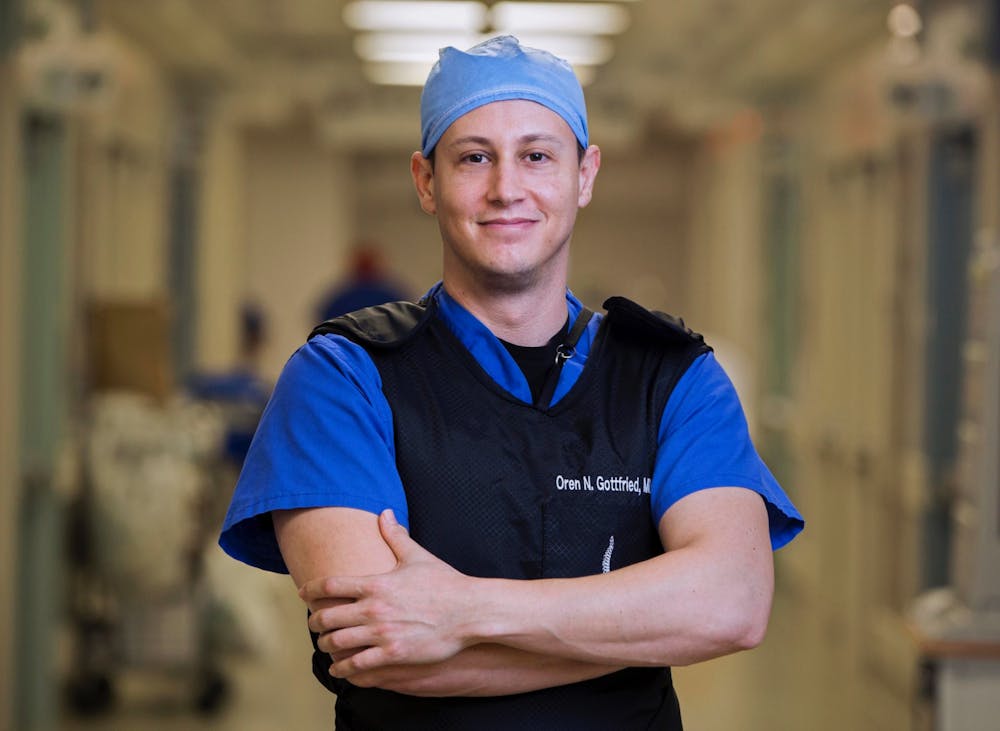As unprecedented artificial intelligence enters industries from scientific research and medicine to consulting and finance, many sectors are beginning to evolve with AI.
Oren Gottfried, a neurosurgeon and spine surgeon at Duke Health, has situated himself at the intersection of entertainment and artificial intelligence as a consultant for NBC’s medical television program “Chicago Med.”
While Gottfried has supplemented his time in the operating room with various stints for television programs over the past nine years, he recently made his debut in voice acting on the silver screen. In January 2023, he assumed a role as the voice of an advanced operating room complete with artificial intelligence — “OR 2.0.”
Gottfried’s television consulting work began at the end of his neurosurgery training with a request from a Duke Medicine alumnus. As a consultant, his responsibilities range from correcting medical inaccuracies in scripts to providing factual medical information to support the show’s plot.
Gottfried has advised for a diverse slate of programs, including “Chicago Med,” “Elementary” and “The Good Doctor.”
After convening for a series of brainstorming sessions, several members of the show’s screenwriting and production team proposed a novel idea to Gottfried: what if he, as the neurosurgeon in the room, played the voice of the AI robot? After a few meetings, the idea came to fruition.
“[The role] was definitely something that the writers developed. I just gave them some of the things I would like to see in a robot –– like, if I had my perfect robot or AI in the OR, I gave them the things that would be on my wishlist,” Gottfried said.
In his new role, Gottfried works as both a teacher and a student, receiving feedback from the sound experts and directors about the cadence and techniques of his speech.
“While anything can be modified in post-production, I try to nail it with my own voice,” he said. “So, I think I've become a more attentive speaker to everything I say. Sometimes when I'm talking in general, or talking to patients or talking to colleagues, I think, ‘What if this was the line from the TV show, would I say it any differently?’ It just made me very aware of how I present every word, every syllable.”
As a medical expert who has witnessed the growing role of robotics in his field, Gottfried provides input to the producers on what he perceives to be the potential limitations possibilities for AI in the operating room.
“The future application [of AI] is that you can use data across many data points and guide someone real-time … [in] an environment where everything goes really quickly,” Gottfried predicted. “So that's where the O.R.2.0 really fits in, because it's part of the conversation. It's part of the surgery, not just an adjunct.”
However, he noted that even artificial intelligence runs into obstacles in scenarios where there is no established precedent, or when variables arise that complicate the accuracy of predictions. In these scenarios, Gottfried stressed, it is important that the hypothetical AI machine moderates its own participation in the OR, so that it does not become disruptive to the surgeon themselves or the surgical process.
Get The Chronicle straight to your inbox
Signup for our weekly newsletter. Cancel at any time.
Halle Friedman is a Trinity senior and an associate news editor of The Chronicle's 119th volume.

